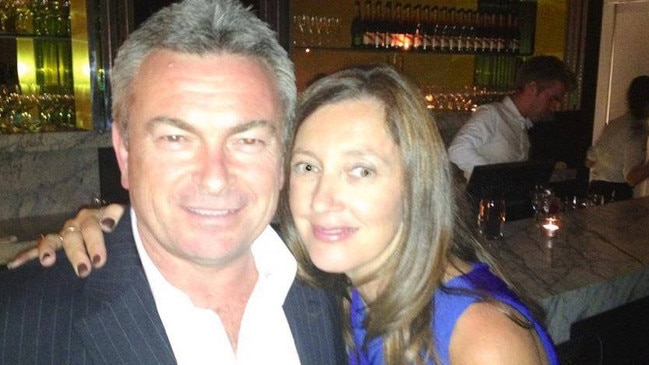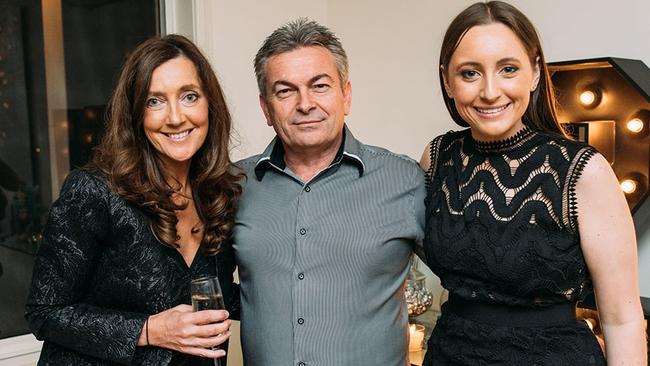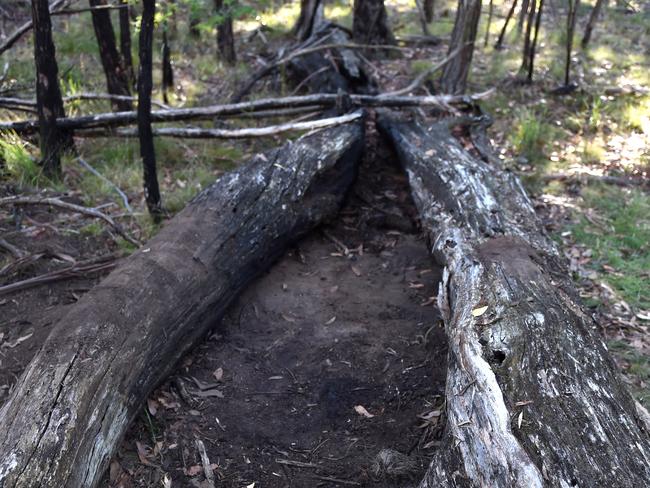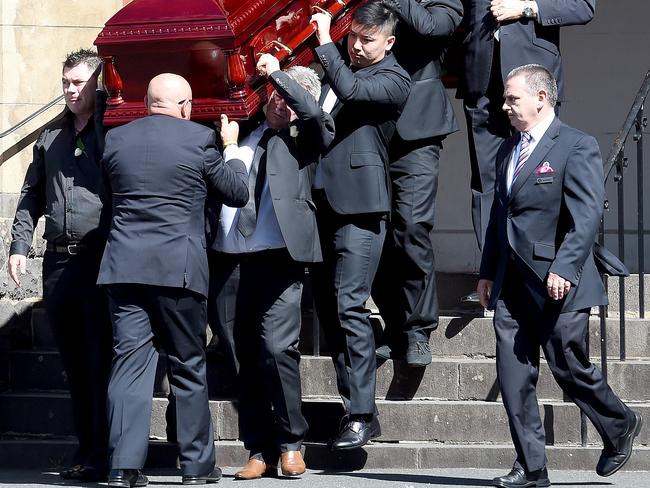Borce Ristevski pleads guilty to killing wife Karen Ristevski
Despite prosecutors previously gunning for the more serious charge of murder, top cop Graham Ashton says Borce Ristevski’s shock confession would allow “justice to move through the courts more quickly”.
Law & Order
Don't miss out on the headlines from Law & Order. Followed categories will be added to My News.
Borce Ristevski sensationally confessed to killing his wife more than two years after her remains were found in bushland, averting the need for a high-profile murder trial.
The father of two had always maintained his innocence over his dress shop-owner wife Karen’s disappearance, as police probed him as the prime suspect.
Despite previously gunning for the more serious charge of murder, police are satisfied with the outcome of yesterday’s shock manslaughter confession on the eve of his scheduled five-week Supreme Court murder trial.
HOW BORCE RISTEVSKI’S PERFECT FAMILY FELL APART
POLICE FINALLY COME FOR BORCE: RULE
CRIME PODCAST: LIFE & CRIMES ON iTunes, WEB OR SPOTIFY

Chief Commissioner Graham Ashton said the sensational plea yesterday would allow “justice to move through the courts more quickly”.
“Certainly for people required to give evidence and other members of the family … it speeds up the process, and it’s all part of that bargaining, that plea situation that is dealt with as a matter of course,” he told ABC radio.
“(I’m) not disappointed. Everyone worked very hard on that case. The police … will be sort of relieved in a way too they will be able to move through with that plea.”
Ristevski’s plea comes after Justice Christopher Beale yesterday morning ruled the prosecution could not use evidence about Ristevski’s conduct after Karen’s death to prove murderous intent.
Pre-trial argument began on Tuesday, with a jury set to be empanelled later in the week.
But yesterday, after hours of discussions between the prosecution and defence, they returned to the court at 2.15pm where prosecutor Brendan Kissane filed a new indictment for manslaughter instead of murder.
Standing in the dock, when asked how he pleaded to manslaughter, Ristevski replied: “Guilty”.

It confirms he was lying to police when he told them she had walked from their Avondale Heights home to clear her head after they had an argument over finances on June 29, 2016.
Ristevski’s brother, Vasko, even suggested Mrs Ristevski, with her relationship on the rocks, had skipped overseas on a fake passport.
But when her body was found eight months after she disappeared, wedged between two logs off a dirt track at Mount Macedon, police knew she had met with foul play.
As the family prepared for her funeral, where Ristevski carried his wife’s coffin, investigators kept digging.
It wouldn’t be until December 21, some nine months later, that they would charge him.
It is not known how Mrs Ristevski was killed, with her remains so badly decomposed when found.

Inconsistencies in where Ristevksi says he was, and what he did, on the day his wife supposedly walked out, were a key to the prosecution case.
As was CCTV footage of Mrs Ristevski’s black Mercedes travelling between Avondale Heights and through Diggers Rest on that day — and pings of both her and her husband’s mobile phones along that route.
“This isn’t just an accidental killing,” prosecutor Matt Fisher told the committal hearing in August.
“Something happened in the house … the accused man engages in behaviour soon after he has either killed her or caused her serious injury.

“He then drives many kilometres to dispose of the body. The drive includes a detour through Diggers Rest. He is looking for somewhere to dispose of the body.
“Then after some driving he comes upon a dirt track, away from buildings, houses, people. It’s isolated.
“Before he gets to that point, at 11.09am, he deactivates his phone. Then at 11.40, he disconnects or deactivates the deceased’s phone.”
His repeated lies would also be his undoing, raising the suspicions of police.
Mr Ashton said cases built on circumstantial evidence were always challenging rather than drawing on direct evidence.
“When you build those circumstantial cases, it can be a laborious and painstaking and often can, in some cases, come down to a jury accepting the circumstantial matters, proving beyond reasonable doubt that a certain set of facts has occurred,” he said.
Risevski initially told police he was at home for most of the day on she disappeared doing bookkeeping, had a shower around 11.30am, before going out in the afternoon to do an Uber driving shift.
He then later changed his account, saying he had taken Mrs Ristevski’s black Mercedes out to refuel it as the petrol gauge was broken.
- with AAP

